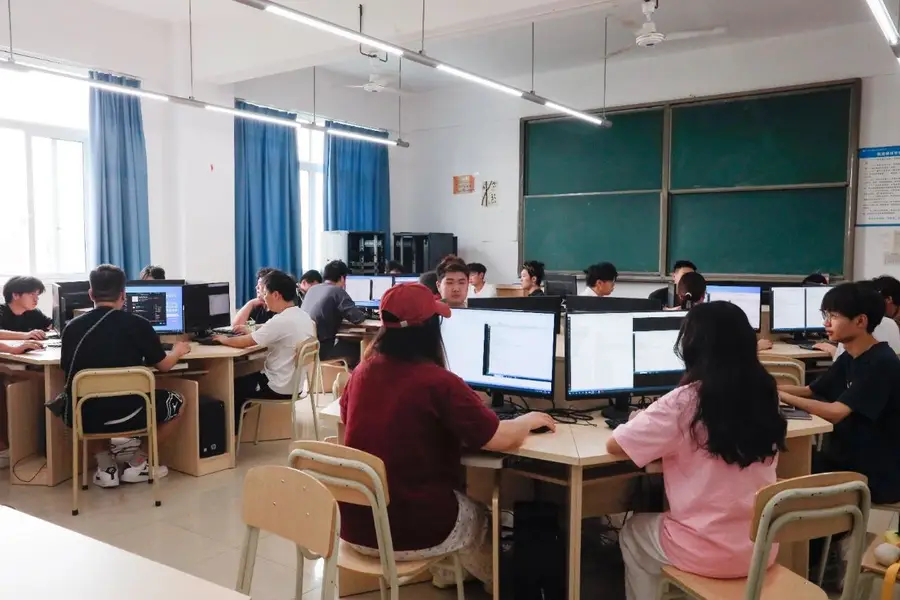XJ International learns financial lesson as heavy debt prompts school asset sales

A prolonged downturn in China’s private higher-education sector has weighed heavily on the debt-heavy company, which is selling assets in a bid to survive
Key Takeaways:
- XJ International’s latest asset sale is priced at just 10 million yuan, but will bring the company 120 million yuan annually in debt it is owed by the asset being sold
- The private school operator has fully redeemed its $350 million zero-coupon convertible bond, eliminating its foreign-currency debt risk
By Lee Shih Ta
China’s private higher-education sector was once a hot ticket for investors, who bet heavily on bright prospects based on the importance Chinese culture places on education. But all that has changed lately as the country finds itself with an oversupply of private colleges following the rapid opening and expansion of many new campuses over the last two decades.
Fading investment since then has hit the heavily indebted XJ International Holdings Co. Ltd. (1765.HK), which has been disposing of assets lately to stay afloat. In its latest transaction on that front, the company said last week it agreed to sell its Xi’an Beinuosi Education Management Co. Ltd. for 10 million yuan ($1.4 million).
More important than the modest sale price is the purchaser’s commitment to repay 120 million yuan in principal plus 8% annual interest owed by the asset being sold to XJ International each year starting from 2026 — effectively providing a predictable cash inflow for the company in the coming years to help ease its persistent financial pressure.
The sale is just the latest for XJ International in the past two years, with market estimates suggesting the company has already realized 2.3 billion yuan from such disposals. The sales span education assets in Jiangxi, Gansu and Yunnan provinces, as well as in the cities of Shanghai and Suzhou, as XJ International’s footprint rapidly shrinks. The company has consistently cited the need to “focus on core quality assets,” “improve the balance sheet,” and “enhance shareholder returns” in all of its disposal announcements.
In stark contrast to a recent past when private higher-education companies were rapidly expanding to cater to growing demand from college-bound students, XJ International is now relying on rapid balance-sheet contraction simply to survive.
Defusing convertible bond risk
XJ International’s financial stress has multiple layers, but a major one of those was its $350 million zero-coupon convertible bond issued in 2021. The debt was the subject of a winding-up petition filed by creditors with the Hong Kong High Court in March last year. That petition was later withdrawn in August, paving the way for restructuring negotiations to begin.
In June this year, the company reached an agreement in principle with a creditor group holding more than 56% of the bonds’ principal, under which each $1,000 of principal debt would be redeemed early for $610. The proposal was approved in July with the support of 95.94% of the outstanding principal holders, making the arrangement binding. The restructuring became effective on Sept. 11, and the company subsequently completed the redemption of all outstanding bonds on Sept. 25, effectively removing its foreign-currency debt risk.
However, defusing the bond risk doesn’t mean XJ International’s financial pressure has disappeared. According to its financial report for the six months through February this year, the company had net current liabilities of 5.63 billion yuan, including 1.13 billion yuan in interest-bearing bank and other borrowings. Meantime, it had just 1.62 billion yuan in cash.
Luckily for investors, the company’s financial statement for the six-month period showed marked improvement. Revenue for the period reached 2.12 billion yuan, up 3.6% year-on-year; its profit rose 28.5% to 307 million yuan; and its operating cash flow swung from a net outflow in the year-ago period to a positive 271 million yuan, suggesting that the company’s finances were back on a positive track.
That said, debt reduction still remains a pressing priority, and asset disposals have become a central component of the deleveraging process. The latest announcement regarding the Xi’an Beinuosi disposal stated the campus’ scale and facilities could not meet future teaching needs, and retaining it would require additional capital expenditure for renovation. Thus, the decision to sell the asset represents a trade-off between growth and cash flow as the company works to shore up its finances.
Ongoing non-core asset disposals
XJ International has accelerated its asset disposals this year, including properties in Baiyin in Gansu province, Nanchang and Zhangshu in Jiangxi province, as well as other assets in the cities of Xi’an in Shaanxi province and Guilin in Guangxi. Market estimates suggest the disposals have generated a combination of cash recovery and debt transfer of more than 800 million yuan.
Earlier announcements show that the assets being divested share several common characteristics: weak profitability, including consecutive losses or negative net asset value in some cases, and the need for continued capital expenditure to upgrade campus facilities and improve teaching conditions — all resulting in long investment payback periods.
Many of the assets being sold are also located in smaller cities where growth in the number of students is slowing and competition among private universities is intense, leaving little room for enrollment expansion and making it difficult to generate stable cash flow. Divesting such assets has therefore become a key strategy in deleveraging and repairing the company’s balance sheet, allowing XJ International to channel more resources into its better performing assets.
XJ International’s shares fell 7.83% to close at HK$0.20 on the first day after the latest asset announcement sale. Even so, the stock remains up about 37% year-to-date, outperforming the broader market. The market’s pricing logic is also relatively clear: with the zero-coupon convertible bond risk now fully defused, XJ International can continue to pursue its strategy of recovering cash through asset disposals and use the money to strengthen its capital structure.
XJ International currently trades at a trailing price-to-earnings (P/E) ratio of around 3.6 times, below Minsheng Education’s (1569.HK) 6.7 times and well behind China Education Group’s (0839.HK) 27.4 times, reflecting lingering investor concerns over the company’s leverage and cash-flow visibility. But a smooth execution of the recent disposals, allowing the company to continue improving its debt structure, could offer some valuation upside for the stock.
For XJ International, asset disposals are only the start of a long deleveraging process. With China’s population now declining, many students opting to skip college in favor of vocational schools and tighter regulatory oversight becoming the norm, private higher-education operators can no longer rely on simply opening new campuses to create value. Building assets with strong academic moats, geographic advantages and stable cash-flow generation will be essential for the long-term prosperity of such companies – a strategy XJ International is now pursuing by shedding its underperforming assets to focus on its best campuses.
To subscribe to Bamboo Works weekly free newsletter, click here






